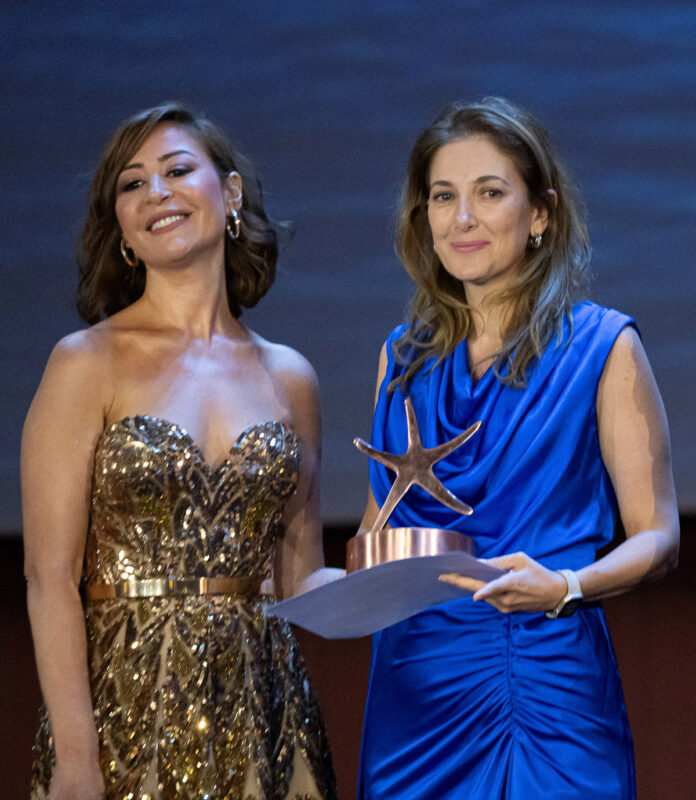
Movies in MENA
Red Carpets by the Red Sea
Egypt’s hottest film festival, El Gouna, looks East rather than West, showcasing local talent and revealing the region as an emerging force in cinema.
No sign of Samih Sawiris. The Egyptian billionaire and mastermind behind the El Gouna Film Festival had texted me in the afternoon to meet at “one o’clock” in the town’s plaza. Given his packed schedule, self-confessed love of parties, and Egypt’s vibrant nightlife, I assumed he meant 1 a.m.
Fast forward to me standing all alone, tape recorder in hand, questions at the ready, tumbleweed practically rolling by in the Red Sea breeze. The booths are closed, the vast auditorium is empty, and not a soul is in sight. Slowly, it’s dawning on me: I’ve been forgotten.
But really, should I be surprised? Sawiris is the ultimate big deal. Not only has he transformed the festival into one of the Middle East’s premier events, but his company, Orascom Development, actually built El Gouna itself—a gleaming resort town on the Red Sea known for its sandbars, coral reefs, and luxury yachts. Hailed as business royalty, the man is trailed by clicking cameras and adoring fans at every turn. So, why indeed, would he remember an appointment with me?
As I’m trudging back to my hotel, he suddenly answers my texts: “Why would I arrange an interview at 1 a.m?” followed by three winking emojis with tongues sticking out. “I meant 1 p.m. tomorrow! Come to my boat at the Abydos Marina, and we’ll talk.”
The next day, aboard his 60-meter superyacht The Hayama, he’s in high spirits, tucking into an omelet. Now in its seventh year, the festival Sawiris co-founded with his brother Naguib has become a cultural powerhouse, solidifying Egypt’s place on the cinematic map—a feat worth celebrating.
“In the early years, we had to beg people to come,” he admits, now puffing on a long wooden pipe, breakfast having been cleared away. “We even paid stars like Sylvester Stallone and Owen Wilson to show up. But now the festival has matured, and with a program that speaks for itself, we don’t need to do that anymore.”
And he’s right. Stars now flock to the opening ceremony without any extra persuasion, and having attended myself, I can confidently say it’s the regional icons—not Hollywood imports—who steal the spotlight.



This year, the red carpet shone with Egyptian legends such as Youssra, Hend Sabri, Huda El-Mufti, and Nelly Karim, alongside rising Jordanian star Rakeen Saad. The glamorous Shawky sisters, Dalia and Passant, also graced the event, with Passant dazzling in a gown that shimmered as brightly as the Red Sea itself. There were also more names from Western shows like Kevin Dias of Emily in Paris and Sibel Kekilli from Game of Thrones.
The opening ceremony, however, wasn’t without awkwardness: a parade of giant animated camels and pyramids projected onto screens seemed needlessly bizarre, while the constant buzz of noisy drones and microlights crisscrossing the sky—releasing fireworks and flashy sponsorship slogans—proved somewhat distracting for the hosts on-stage, who were frequently interrupted.
More unfortunately, the Egyptian short film The Last Miracle was pulled from the opening night at the last minute after censors revoked its screening license, a move Sawiris branded “totally ridiculous.”
Yet, for all its glitzy spectacle and scheduling hiccups, Sawiris rightly insists that the true strength of the El Gouna Film Festival lies in its program, which showcased 83 films from 48 countries across features, documentaries, and shorts, with 43 percent directed by women.
“Most Americans assume the Middle East can’t produce something like this,” Sawiris says. “It’s something that benefits the country—showing that we can be counted among the world’s sophisticated, culturally vibrant societies. That’s a meaningful achievement.”
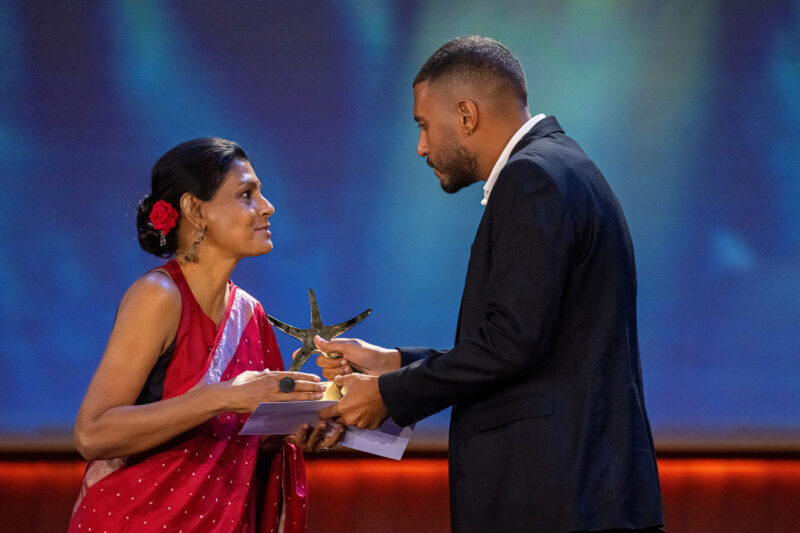
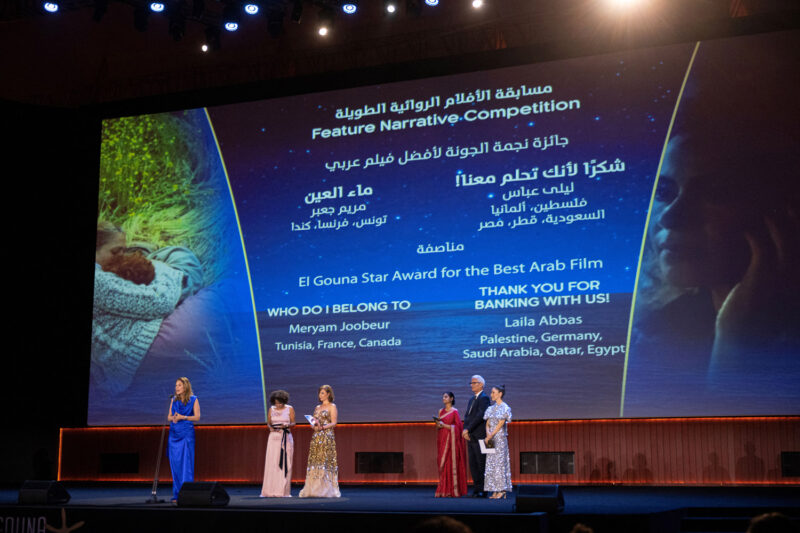
The commitment to elevating regional storytelling is evident in the 2024 program—curated by artistic director Marianne Khoury—which tackles themes of migration, conflict, and displacement. Highlights include Jonathan Millet’s thriller about Syrian exiles in France, Ghost Trail, which won the Golden Star for Narrative Film and Laila Abbas’s comedy about Islamic Sharia law, Thanks for Banking With Us!, which took home the award for Best Arab Film. Both also received acclaim internationally, with Ghost Trail receiving a Golden Camera nomination at Cannes and Thanks for Banking With Us! nominated for Best Film at the London Film Festival.
A personal favorite was the documentary Tell Them About Us, by Jordanian writer and director Rand Beiruty, which explores the struggles of young Arabic refugee women as they navigate their dreams while adapting to life in Germany.
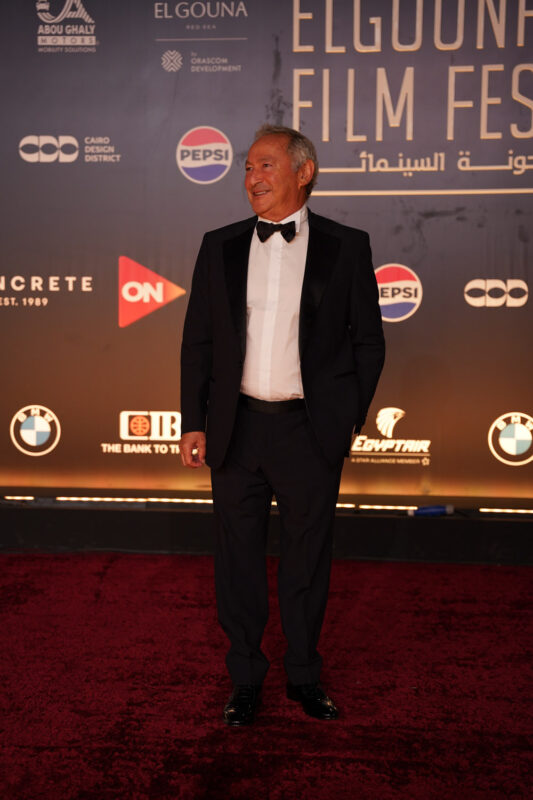
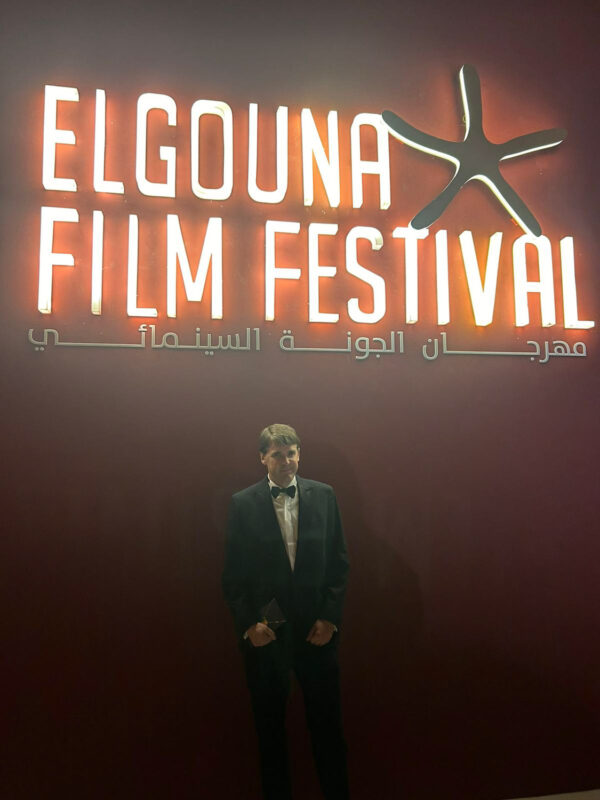
In this complex landscape, the undeniable influence of Saudi Arabia emerges as another significant force in cinema. The oil-rich nation has heavily invested in productions across Egypt and the wider region, with many of these films featured in this year’s festival lineup—a move that, while met with mixed reactions, Sawiris views positively.
“I think we need to be grateful rather than jealous,” he says. “In the absence of other investors, the Saudis are taking the lead in reviving Arabic culture.”
If Saudi Arabia’s aim is to develop a robust regional film industry—expanding its cultural influence, nurturing local talent, and gaining filmmaking expertise from its neighbors—then Egypt’s El Gouna Film Festival, perched on the Red Sea’s edge, stands at the forefront of a new wave in Arab cinema.
As Sawiris gazes out over the tranquil waters from his yacht, he remains optimistic about cinema’s ability to transcend borders and politics. With the principle of “Cinema for Humanity” underpinning his festival and a wealth of new films being financed by the Saudis across the region, he finds himself in a promising position. After all, a rising tide lifts all boats (his included).
Hero photo by Khaled Desouki/AFP via Getty Images



